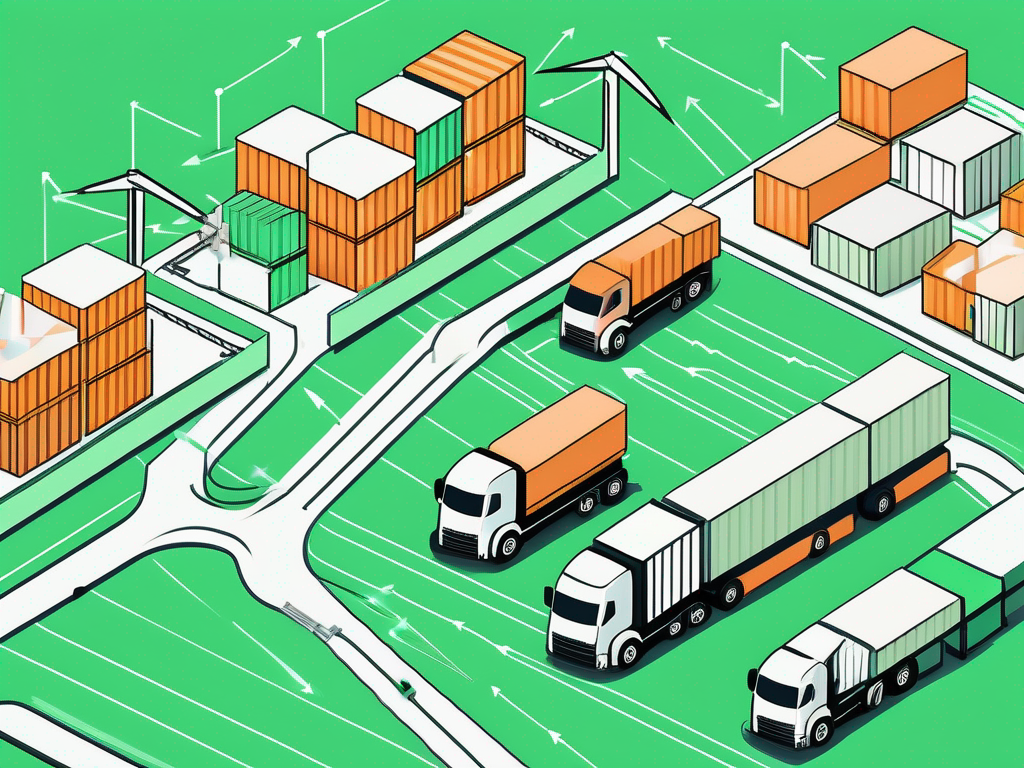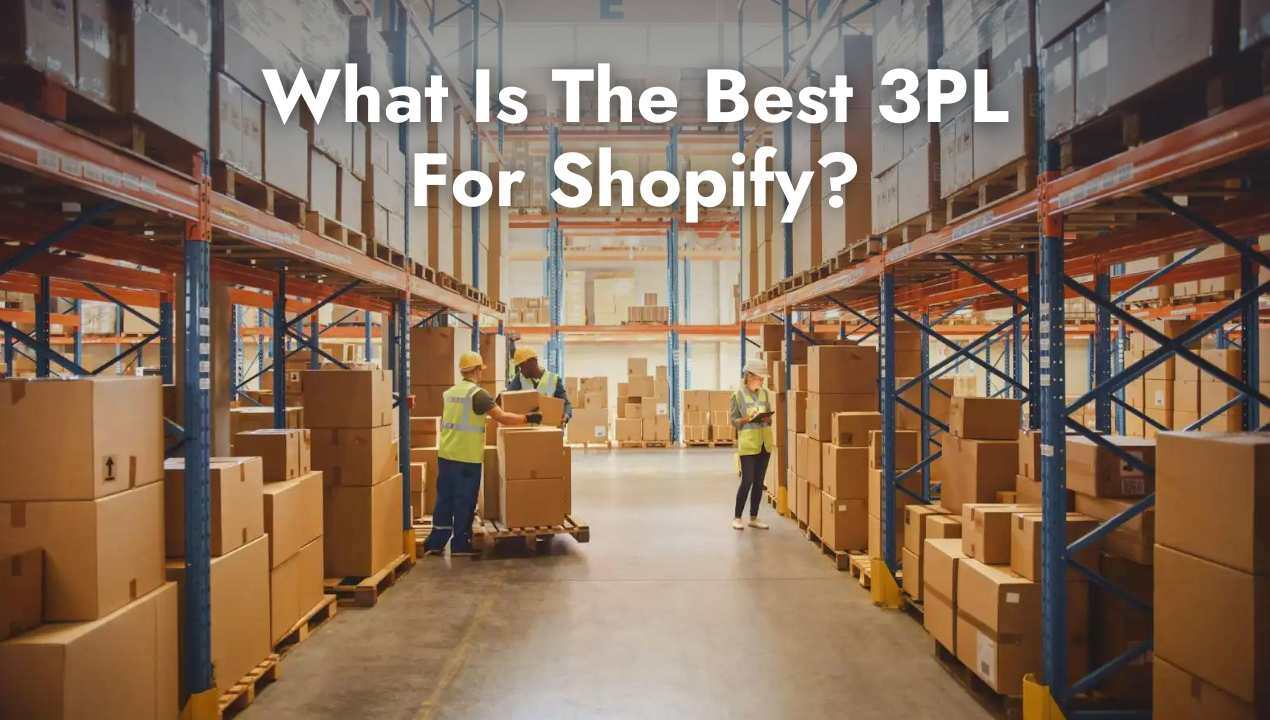Share this
Finding The Right 3PL Ecommerce Fulfillment Partner
by Christie McLeod on Jun. 1, 2022

In the fast-paced world of online retail, finding the right ecommerce fulfillment partner can make or break a business. This choice is more than a mere business decision; it’s a strategic move that aligns directly with your brand’s efficiency, customer satisfaction, and overall growth. A crucial component of this alignment lies in selecting the right ecommerce fulfillment 3PL, or third-party logistics partner, that can handle the complexities of your supply chain needs.
The importance of logistics in the supply chain cannot be overstated. It ensures a seamless flow of products from manufacturers to consumers, a vital function of ecommerce businesses. But managing logistics in-house can be a Herculean task, laden with challenges and often requiring significant resources.
That’s where outsourcing to a specialized ecommerce fulfillment 3PL comes in. By choosing a logistics partner that has the expertise, technology, and infrastructure tailored to your specific needs, you can focus more on what you do best: growing your business and satisfying your customers.
Choosing the right logistics partner is not just about reducing costs. It’s about enhancing efficiency, scaling with flexibility, and building a robust supply chain that adapts to market changes and customer demands. In this article, we’ll explore the essential considerations in finding that perfect ecommerce fulfillment partner. We outline the criteria to evaluate and the questions to ask to ensure a partnership that fosters growth, innovation, and sustainability.
What is a 3PL and when do you need one for Ecommerce Fulfillment?
A 3PL, or third-party logistics provider, is a specialized company that manages and oversees a business’s logistics operations. This often includes warehousing, transportation, and order fulfillment. A 3PL acts as a bridge between the seller and the customer, ensuring that products are stored, packed, and shipped efficiently. By employing advanced technology and tailored solutions, a 3PL can optimize the entire ecommerce fulfillment process, aligning it with the unique demands of an online retail environment.
So, when does an ecommerce business need a 3PL? The answer often comes down to scale and complexity. When a business grows to the point where handling fulfillment in-house becomes a strain on resources, or when the requirements for storage, shipping, and handling become too complex to manage efficiently, it’s usually time to consider partnering with a logistics provider.
This transition allows the ecommerce retailer to leverage the expertise, infrastructure, and economies of scale offered by a 3PL. By outsourcing these critical functions to a seasoned ecommerce fulfillment partner, businesses can continue to focus on their core competencies, knowing that their logistics are in capable hands, poised to adapt and scale with their evolving needs.
Read below for a checklist that will help you evaluate which of the best 3PL companies for ecommerce is suited for your business.
Checklist when picking a 3PL Ecommerce fulfillment partner:
YOUR COMPANY:
- How many orders do you ship a day/month? – Understanding your shipping volume helps you choose a 3PL that can handle your current needs and grow with you.
- What is your maximum capacity? – Identify your peak shipping periods and ensure the 3PL can meet those demands without compromising service.
- How many SKU’s do you have? – Knowing your SKU count informs the 3PL about the complexity of your inventory, which they must efficiently manage.
- What is your product? – Sharing details about your products (e.g., perishable, fragile) helps the 3PL tailor their services to your specific needs.
- What are your product specifications? – Dimensions, weight, packaging requirements, etc., are crucial for precise warehousing and shipping planning.
- Where are you shipping to and from? – Highlighting both origin and destination markets ensures the 3PL can provide efficient routes and compliance with regional regulations.
- What are your storage needs (pallet occupancy)? – Detailing your warehousing requirements, like pallet spaces or special storage conditions, ensures the 3PL has suitable facilities.
- What sales channels are you using? – Whether you sell through online marketplaces, social media, or direct websites, the 3PL needs to integrate seamlessly with your platforms.
- What additional services do you require outside of general fulfillment? This could include order management, returns management, or being able to integrate with Shopify or other ecommerce platforms. Outline any other unique needs like gift wrapping, kitting, or specific platform integrations, so the 3PL can align their services accordingly.
- What is your timeline for transition and are you currently working with another 3PL? – Clearly communicating your timeline and any existing commitments helps the 3PL plan a smooth transition and ensures continuity in your fulfillment processes.
By discussing these details upfront, you’ll be better positioned to find ecommerce fulfillment services that align with your business strategy and customer expectations.
YOUR 3PL PARTNER:
- What are their hours of operations (including weekends and holidays)? – Knowing their operating hours ensures they align with your needs and expectations, especially during peak seasons.
- How many warehouses do they operate and where are they located? – Multiple locations, especially near key markets, can reduce shipping times and costs.
- Do their warehouse locations correlate with your brand’s high-volume area? – Warehouses near your most active markets mean faster delivery, enhancing customer satisfaction.
- Do they have a good online presence and rating? – Reviews and ratings on platforms like Google or industry-specific sites give insights into their reliability, customer service, and reputation.
- Do they have case studies or customer references? – These offer real-world evidence of their capabilities, showing how they’ve met the needs of other businesses.
- Have they worked with companies in your industry? – Experience in your field means they likely understand your specific challenges and requirements.
- What kind of customizations do they offer? – Tailoring services to your unique needs, such as specialized packaging or branding, can enhance your customer experience.
- Do they offer next day delivery? – This service can be vital for meeting customer expectations in today’s fast-paced ecommerce environment.
- Do they integrate directly with your online store? – Seamless integration and app support can simplify order management and tracking for both you and your customers.
- What is the communication process like? Is it easy to get help? – Evaluate their responsiveness, support channels (e.g., email, phone, chat), and availability to ensure you can get assistance when needed.
- How are the costs broken down in their quotes? – This includes transportation, receiving, warehouse and pick and pack, account set up, and minimum costs. Transparent and detailed costing helps you understand exactly what you are paying for, enabling you to compare providers more accurately.
By considering these elements, you can make an informed decision when selecting a 3PL ecommerce fulfillment partner. Remember, the right partner will not only meet your logistical needs but align with your overall business strategy, fostering a relationship that enhances growth and customer satisfaction.
BREAKING DOWN 3PL COSTS:
These are the most common costs you’ll find among the top 3PL fulfillment companies.
- Transportation: This includes the costs associated with shipping your product to the fulfillment center. It may encompass the charges for fuel, labor, and vehicle maintenance.
- Receiving: This cost refers to offloading products from your transportation provider to the fulfillment center’s warehouse. It usually covers labor and equipment needed to safely unload and inspect the products.
- Warehousing Fees: Typically, this is a monthly fee based on the amount of space used in the fulfillment center and is often charged per pallet. Costs can vary depending on the need for special storage conditions or security measures.
- Pick-and-Pack Fees: These fees cover the labor and materials needed for picking units from shelves or bins and packing them for each shipment. Most times, these fees can be discounted or lowered for higher volumes, so it’s essential to understand how volume affects this cost.
- Shipping: This entails the delivery of the product to your end customer. Costs can range based on shipping method, distance, package size, and weight, along with any additional services like tracking or insurance.
- Account Set-Up Fees: These fees are for account creation and software integration, enabling seamless communication between your business systems and the 3PL’s platforms.
- Minimum Fees: Some 3PLs may require a minimum monthly spend. Understanding what this threshold is and what happens if you don’t meet it is essential for budgeting and planning.
Shipfusion Offers the Best 3PL Services for Ecommerce
- Multiple fulfillment centers across the US and Canada
- Freight
- Shipping and receiving
- Returns
- Integrations
- Inventory management
Multiple Fulfillment Centers: Fulfillment should be simple, Shipfusion’s full-service network lets you control your data with fast shipping and transparency for clients in the US and Canada. Our multiple eCommerce fulfillment centers across North America allow or quick delivery and even temperature-controlled product storing.
Freight: Shipfusion automates the process of booking and managing freight by using AI-driven matching algorithms to find the best carriers, routes, and rates from our network of logistics 3PL Fulfillment Partners. Our Live Pricing app is integrated directly into each carrier, allowing them to pass back accurate live pricing options to end customers at checkout.
Integrations: Shipfusion easily integrates with popular ecommerce apps and includes an intuitive, web-based app that lets you manage inventory and fulfillment on any device. The onboarding team ensures the accuracy of data for new customers with a complete analysis of SKUs and multiple tests run between Shipfusion and existing systems. This makes Shipfusion the best 3PL for Shopify, Amazon, WooCommerce, and any other popular ecommerce platform.
Shipping & Receiving: Fulfillment companies like Shipfusion will have relationships with many different major shipping carriers, therefore providing you with the best rates and next-day guaranteed shopping options. Fulfillment companies like Shipfusion will have cut off times for orders to be placed by.
Returns: Shipfusion’s custom returns portal easily generates shipping labels and knows exactly when merchandise is returned and receives confirmation that quality control checks were done upon arrival.
Inventory Management: Easy integration, Shipfusion will set up everything you need to control and maintain inventory and shipments. The Shipfusion platform automatically updates inventory data as orders enter the system, providing a real-time snapshot of your products across every sales channel and facility.
There’s a reason Shipfusion is the best 3PL for ecommerce. Shipfusion offers turnkey logistics solutions that allow you to focus on running your ecommerce business. With fulfillment centers in the US and Canada, we provide dependable service combined with real-time technology. If you want to optimize your business and make things simple, get in touch with one of our fulfillment specialists today.
Share this
You May Also Like
These Related Articles

Optimizing Your Supply Chain: A Guide to 3PL Fulfillment and Prep

Finding the Best Cosmetics 3PL Companies for Your Ecommerce Business

What Is The Best 3PL For Shopify?
- June 2025 (22)
- May 2025 (27)
- April 2025 (27)
- March 2025 (26)
- February 2025 (26)
- January 2025 (35)
- December 2024 (16)
- November 2024 (22)
- October 2024 (22)
- September 2024 (27)
- August 2024 (9)
- July 2024 (8)
- June 2024 (5)
- May 2024 (8)
- April 2024 (8)
- March 2024 (6)
- February 2024 (6)
- January 2024 (5)
- December 2023 (3)
- November 2023 (3)
- October 2023 (5)
- September 2023 (4)
- August 2023 (2)
- July 2023 (1)
- June 2023 (4)
- March 2023 (2)
- October 2022 (1)
- September 2022 (5)
- August 2022 (4)
- July 2022 (7)
- June 2022 (4)
- May 2022 (4)
- April 2022 (6)
- March 2022 (2)
- February 2022 (1)
- January 2022 (3)
- December 2021 (2)
- November 2021 (4)
- October 2021 (2)
- September 2021 (5)
- August 2021 (4)
- July 2021 (4)
- June 2021 (3)
- May 2021 (2)
- April 2021 (3)
- March 2021 (3)
- February 2021 (3)
- January 2021 (2)
- December 2020 (4)
- November 2020 (2)
- October 2020 (4)
- September 2020 (2)
- July 2020 (5)
- June 2020 (4)
- May 2020 (2)
- April 2020 (2)
- March 2020 (4)
- February 2020 (1)
- December 2019 (1)
- May 2018 (1)
- March 2018 (2)
- February 2018 (3)
- January 2018 (3)
- November 2017 (3)
- July 2017 (4)
- March 2017 (3)
- February 2017 (5)
- January 2017 (3)
- December 2016 (4)
- November 2016 (6)
- October 2016 (6)
- October 2015 (1)
- September 2015 (1)
- June 2015 (3)
- May 2015 (3)
- August 2014 (1)
- July 2014 (1)
- March 2014 (1)
- February 2014 (1)